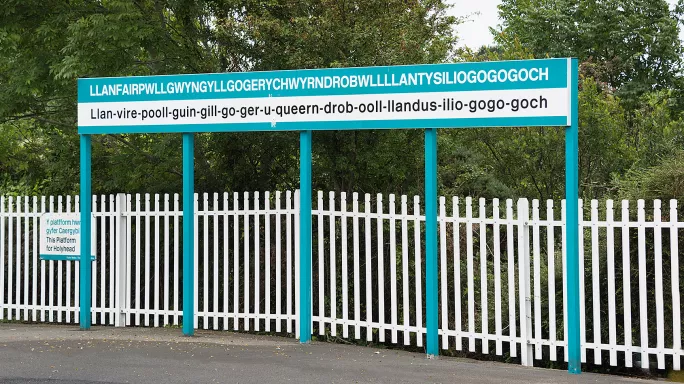Estyn chief: ‘I want Welsh schools to welcome inspectors’

Owen Evans, the chief inspector of education and training in Wales, has set himself a goal: by the time his five-year contract ends in January 2027, he wants Welsh schools to welcome inspectors in. He is not sure he will get there, but has said once you have that ambition it impacts “every decision underneath it”.
“If you decide that you want to be welcomed in then that means people need to value you, people need to trust you and people have to believe you’re a force for good,” he says.
School inspectorates range in the approach they take, from being about “pure accountability” to “full support”. Evans says he would “like to live somewhere in the middle along that continuum”; previously, in his view, Welsh inspectorate Estyn was “mostly” about accountability.
The change is part of ongoing education reforms taking place in Wales that include the introduction of Curriculum for Wales and changes to qualifications.
Professor Graham Donaldson - the former head of the school inspectorate in Scotland - carried out the reviews behind the reforms. In 2015, his Successful Futures report looked at curriculum and assessment arrangements and in 2018, his independent review of Estyn was published.
Wales on similar trajectory to Scotland
Donaldson’s involvement has, perhaps unsurprisingly, set Wales on a similar trajectory to Scotland. There are clear parallels between Curriculum for Wales and Scotland’s Curriculum for Excellence, and the ongoing changes to inspection chime with reforms that began in Scotland over a decade ago during Donaldson’s tenure as chief inspector.
As is already the case in Scotland, inspection in Wales will, from September - after a series of pilots in 2023-24 - officially move towards “robust self-evaluation” with schools expected to “be open about the support they need”.
In Wales, one- or two-word ratings for schools have also been scrapped. It was announced in June 2022 that “summative judgements” would “be removed from inspection reports” and these would “be replaced with a deeper evaluation of a school’s work”.
Again, in Scotland, this has long been the case - although Wales has arguably gone further. In Scotland, inspectors no longer use ratings ranging from “excellent” to “unsatisfactory” to rate a school’s overall performance - however, schools are still graded this way on individual quality indicators such as “learning, teaching and assessment” or “raising attainment and achievement”.
But in Wales, Evans says one- or two-word ratings have now disappeared entirely from Estyn’s feedback to schools.
- Background: National categorisation of schools to end in Wales
- Related: Wales to run media campaign to dispel inspection ‘myths’
- News: Heads’ mental health ‘ravaged’ by Ofsted
All of this leaves England and Ofsted as something of an outlier.
In England, whether or not to scrap one- or two-word judgements has been the source of heated debate since the suicide of headteacher Ruth Perry, who took her own life after an Ofsted report downgraded her school from the watchdog’s highest rating to its lowest over safeguarding concerns.

Her sister - Professor Julia Waters - has described one- or two-word judgements as “dangerous, misleading and simplistic”.
Labour has promised to replace “a single headline grade with a new report card system telling parents clearly how schools are performing”. Polling, however, has shown a negative response among the public to the policy.
Taking the sting out of inspectors’ school visits
In Wales, Evans says there has been no huge backlash from parents in the wake of the change - and “a massive positive response from the profession”.
“One of the things that summative judgement creates is high stakes. And the second thing it creates is that there is them and us,” he says. “So what we have found by getting rid of one-word judgments is it takes a bit of the pressure and sting out of our visit.
“But the reason I’m more in favour of it is that the arm wrestle that used to happen at the end of the inspection, about what grade you’re going to get - it’s gone. And now it’s quite a rich dialogue about, ‘look you’ve done quite well on this - but you need to really focus on X, Y, Z’.”
Up to now, the goal in Wales has been that a school should be inspected every six years, but next year the plan is for the rate of inspection to double, with inspectors calling twice every six years.
It is perhaps harder to see how this will endear the inspectorate to schools and teachers, and get Evans closer to his goal of being welcomed in.
However, he argues that irregular inspection has made the process more high-stakes. Some Welsh schools, he says, have not been inspected for eight years because of the backlog caused by the pandemic, with the result that schools do not know what to expect when Estyn arrives.
“They don’t know what an Estyn visit means, they don’t know what it looks like and so everyone gets nervous and we don’t see the best of the school.”
Supporting as much as holding to account
Evans also argues that if the idea is to help schools improve, contact needs to increase.
“If you want to create a self-improving system you need to support as much as you hold to account,” he says.
“We don’t do the improvements - that’s for the school and support services - but what we will do is provide a very good diagnostic and then go back and see how they are doing and signpost as necessary.”
Estyn will therefore inspect a school twice in six years, covering three instead of five areas: teaching and learning; care, support and wellbeing; and leading and improving. If there is time during the follow-up visit, he says, schools will be asked if there is anything in particular they want inspectors to look at.

Evans was previously chief executive of S4C, the Welsh language broadcaster. He got the education bug, he says, in his previous role at the Welsh government working as the deputy permanent secretary responsible for education and public services. It was during his tenure that the £20 million-a-year Schools Challenge Cymru (SCC) was launched - a programme that gave 40 underperforming schools extra support and funding, but which was abandoned in 2017 amid some controversy.
Evans joins inspections regularly, he says - not as part of the team, but he likes to sit and have a cup of tea with the headteacher.
“It’s important for people in my position to really know what’s going on,” he notes.
Evans wants the profession “to get used to Estyn” and not see it as “the Dark Side” or some faceless organisation, but as a body that is “part of the system and willing to engage”, which “all goes to destigmatise us as inspectors”.
The body has also committed to more quickly feeding back its findings from all inspections carried out over the school year.
Providing an overview of what works in Welsh education
“Accountability is important but we are the biggest repository of what’s going well and what’s not in Welsh education - if we don’t feed that back, who will?”, he says.
The aim is for an interim report to be published in September to coincide with the new school year (last year, it came out in October) with the full annual report published in January.
The NAHT Cymru school leaders’ union says there has been “a sea change” in the approach to school inspection in Wales since Evans took over - not just in how the body inspects, but also in the quality of feedback schools receive.
Getting rid of summative judgements, says NAHT Cymru national secretary Laura Doel, was “a huge win” and school leaders’ attitudes towards inspection are gradually changing.
“There are still some stories about rogue inspectors who maybe embody regimes from the past, but we are seeing positive change,” she says.
So what will it look like when Evans attains his goal and the attitude of schools and staff change to the extent that they welcome Estyn in?
Evans isn’t expecting schools to “get the bunting out”. But he doesn’t want staff to be “trepidatious” about inspection or see it “as a burden”.
And is that so far-fetched?
Making the inspectorate an ally of schools
In the current climate, given the squeeze on school budgets, could the inspectorate even be seen as an ally - an independent voice drawing attention to the challenges schools face, from teacher shortages to lack of funding?
Evans has already supported calls from the profession to maintain a sharp focus on priorities such as implementing the curriculum - and not to muddy the waters with less-pressing issues such as school-year reform.
In June, new education secretary, Lynne Neagle announced that plans to rejig terms and holidays in Wales had been put on hold.
Evans says the government needs to “focus on what matters and build momentum in the areas that are fundamental to education”.
But, he adds, if you are going to look at the school year, why not be more “radical”?
He suggests - given that UK pupils spend more time in school than their counterparts in almost any other developed country - a week could be shaved off the school year and given “back to the profession for professional learning”.
This would be “a no-cost option” and would take the pressure off the handful of inset days teachers currently get, he argues.
More talk like that and maybe schools will welcome inspectors in. Who knows - they might even get out the bunting.
Emma Seith is a senior reporter at Tes. She tweets @Emma_Seith
You need a Tes subscription to read this article
Subscribe now to read this article and get other subscriber-only content:
- Unlimited access to all Tes magazine content
- Exclusive subscriber-only stories
- Award-winning email newsletters
Already a subscriber? Log in
You need a subscription to read this article
Subscribe now to read this article and get other subscriber-only content, including:
- Unlimited access to all Tes magazine content
- Exclusive subscriber-only stories
- Award-winning email newsletters
topics in this article



